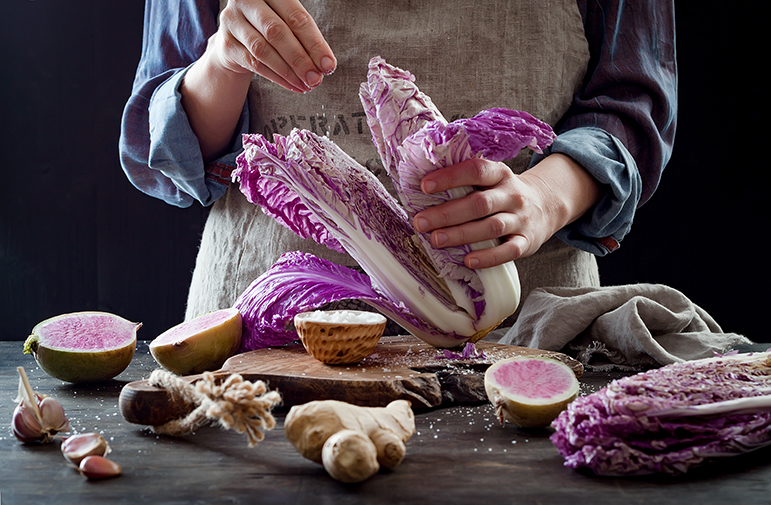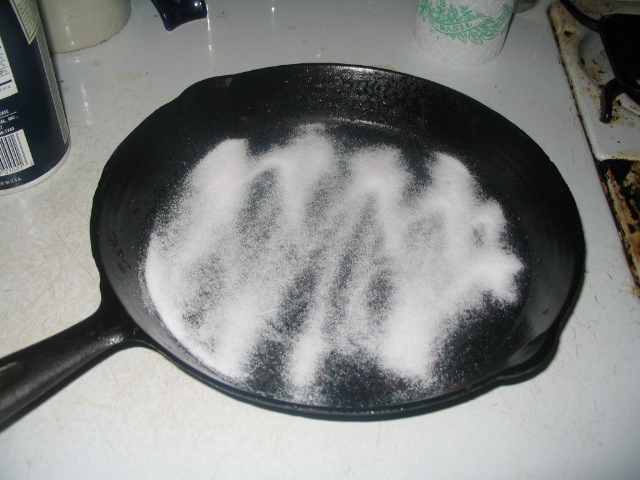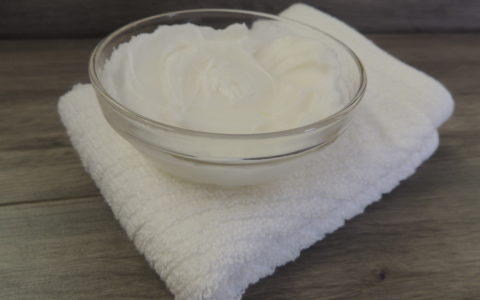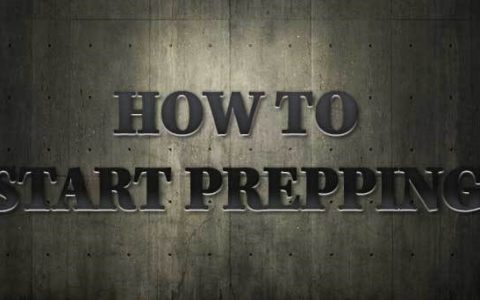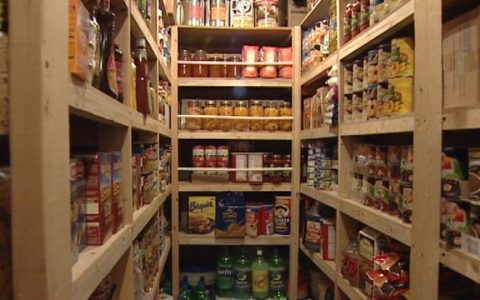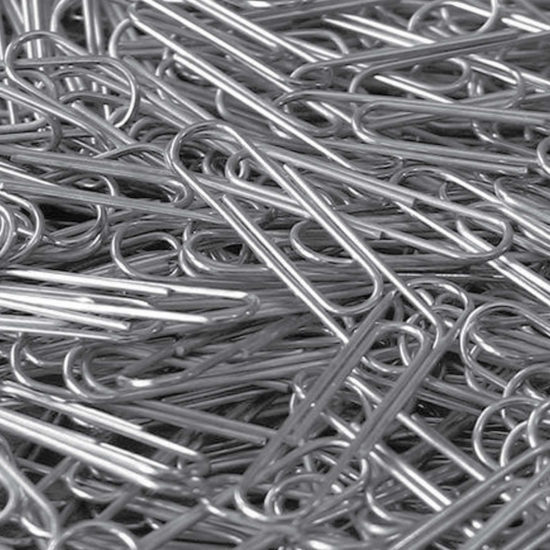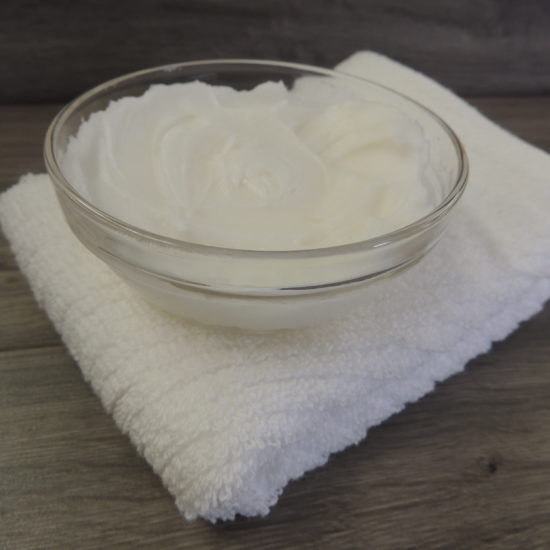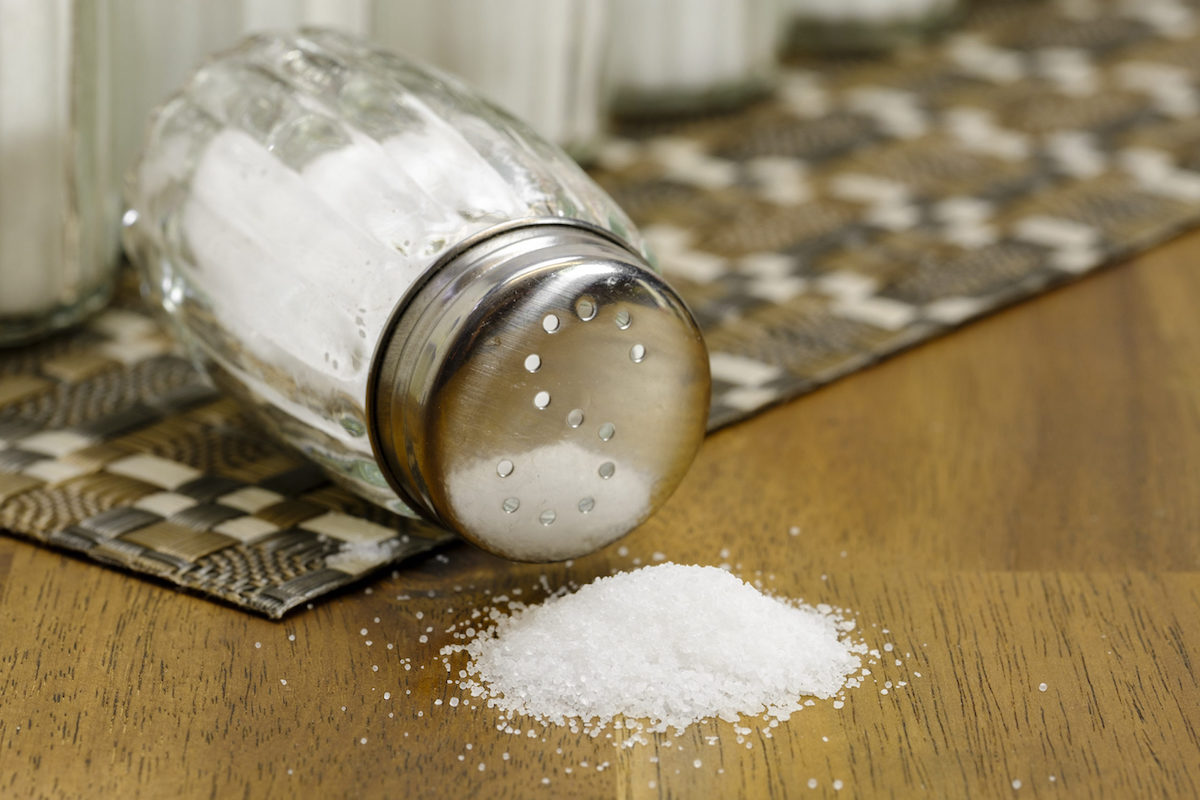
When it comes to sprucing up a bland dinner or adding flavor to homemade pickles, there are few ingredients that can compare with good ol’ fashioned salt. Salt allows food molecules to be released into the air and gives the food a distinct aroma and flavor. It highlights and suppresses the taste of foods, and is a necessary staple for any homesteading chef.
However, did you know that there are multiple uses for salt outside of the kitchen? There are several different types of salt; all of which can serve distinctive purposes.
Table salt is the most common type of salt and is finely ground, containing no trace minerals or impurities. It does not clump and has added iodine, which is necessary to prevent conditions such as hypothyroidism. Sea salt, on the other hand, contains higher quantities of minerals such as zinc, potassium, and iron, making it excellent for cooking and food preservation.
Other types of salt include kosher, Himalayan pink, Celtic sea, flake, and pickling salt. Although there is a vast variety of salts and their uses vary, it’s important to remember that all salt can be given second-life in these multi-purposing tips.
Food Preservation
Increase longevity of foods
Salt acts as a preservative through the process of osmosis. When two chemicals are brought into contact with each other, they reach a situation of equalization. As a result, it can be said that salt helps to dehydrate foods by absorbing or “equalizing” the water contained within the food. This dehydration prevents the food from decomposing.
To preserve your fruits, vegetables, and meat, you must completely cover your food with water and then gradually add salt (until there are salt deposits on the bottom of your container). Store this container—ideally with an airtight seal– in the refrigerator for several days. After this time has elapsed, exchange the old brine for fresh. If you’re dehydrating meat; bake it in the oven at an extremely low temperature.
For short-term preservation, cut fruits and vegetables can also be placed in a saltwater solution. The salt helps prevent the pieces from turning brown and losing flavor. This is a great solution if you’re cutting up large quantities of potatoes, apples, or other ingredients for cooking, and need to temporarily prevent them from browning.
Test egg freshness
If you are a homesteader and tend to stockpile large quantities of chicken eggs, this is the tip for you. If you’re not sure how long that carton of eggs has been in your fridge, never fear. Simply place the questionable egg in a cup of water with two teaspoons of salt. If the egg sinks, it’s fresh. If not; it will float (and should definitely be tossed).
For the eggs you plan to keep, there is another use for salt. You can prevent eggshells from breaking during the hard-boiling process by adding a few teaspoons of salt to the boiling water. This will save you time and energy—and also prevent a nasty, stinky mess!
Extend the shelf life of dairy products
As a prepper, it’s important that you maximize the shelf life of all of your supplies—especially hard-to-store dairy products. To preserve cheese, soak a napkin or cloth in saltwater and tightly wrap it around your cheese. This will prolong its shelf life and prevent mold.
You can also add a pinch of salt to a carton of milk. Doing so will allow the milk to stay fresh a week or sometimes more past its expiration date.
Cleaning
Season cast iron
Cast iron pans are fabulous cooking tools for homesteaders because they add an immense amount of flavor to your food and provide trace quantities of iron. However, since they have the ability to rust when exposed to water, they are difficult to wash.
Salt can save the day! If you have a grungy cast iron pan with stubborn remnants of food, simply pour one cup of coarse kosher salt into the warm pan. Scour using a rag (be careful not to burn yourself). Then dump the salt and briefly rinse with hot water. Dry or heat the pan immediately to evaporate the moisture.
Remove odors from wood cutting boards
Been cutting up some stinky salmon on your beautiful wood cutting board? Odors tend to linger for longer periods of time in wood because it can be tougher to sanitize. However, salt can help. Pour an ample amount of salt on your cutting board, then rub with a damp cloth before washing in warm water or with bleach. No more stink!
Eradicate stains and freshen up
Salt is great at removing stains because it is a natural exfoliant. As a result, it can be used to clean hard water stains, dishes, coffee rings, the oven, and even stains from red wine or blood. A salt-water paste applied to a surface is effective at getting out the toughest stains.
You can also clean your cleaning supplies with salt. Sponges tend to get gross with multiples uses. Rather than throwing it out and buying more (not a good option for most preppers), soak it in saltwater overnight. When you wring it out the next morning, you’ll think it was a brand new sponge.
Get rid of rust
If your outdoor furniture or fixtures have seen better days, salt can help. Make a paste with six tablespoons of salt and two tablespoons of lemon juice. Ironically, although salt often causes rusting (which you’ll know all about if you live in a northern climate and own a vehicle), this combination can help remove rust stains from most surfaces. Just be sure to rinse thoroughly and dry so that the mixture doesn’t set in and amplify the problem.
Deodorize your clothes
If you live an active lifestyle, as most preppers and homesteaders do, you’ll find that your clothes begin to tell a smelly tale after a period of time. To freshen up your shoes, spray the inside with a saltwater solution. This will help eliminate and prevent future odors.
You can also add a few tablespoons of salt to your laundry detergent. Salt is eco-friendlier than most store-bought additives such as OxiClean and will help keep your clothes fresh and bright while removing any lingering odors.
Wash lettuce
You want your salad to have a crunch—but that crunch shouldn’t be from all the leftover dirt. Lettuce and other leafy greens, such as kale or collards, can be difficult to wash because the irregular shape of their leaves allow dirt to become trapped. If you soak your salad mixture in a water bath with a bit of salt, the salt will help to force away the rest of the dirt.
Safety and First Aid
Stop a grease fire

Grease fires are hard to put out but are frighteningly common. In fact, cooking fires are the most common cause of house fires in the United States. Don’t rely on a fire extinguisher for small fires—instead, turn to salt.
Salt helps to smother fire as it deprives the flames of oxygen. It won’t make a mess of your grill, barbeque, bonfire, or stovetop, either. It also won’t cause excessive smoke.
Treat Wounds
The main chemical that exists in salt, sodium chloride, acts as a cell dehydrator in most situations. This means that simple cuts and injuries can be treated by applying a saline solution. Because salt forces the liquid in cells to move out of the body, it helps eliminate unwanted bacteria from entering your bloodstream. In essence, this helps to prevent infection and speed up the healing process. Next time you find yourself with a small cut, apply a small amount of saltwater (yes, it will hurt!) until the wound is healed.
Disclaimer: The author is not a doctor. Neither the author nor old.dailypreppernews.com shall be held responsible for the usage of the information in this article.
Calm inflammation from insect bites and stings
Let’s face it. Insect bites are probably the number one most unpleasant thing about summer months. They itch, make you feel uncomfortable and frankly, make you hate going outside in the first place. Fortunately, salt can help to alleviate some of the discomfort caused by bites or stings from honey bees, wasps, mosquitoes, and other flying critters.
Soak a cloth in saltwater and use it as a compress. This will help to cool your skin and relive the itch. This remedy can also be used for rashes caused by poison ivy, oak, and sumac.
Melt hazardous icy spots
One of the most common—and most old-fashioned—uses for salt is as a de-icer. Salt naturally lowers the freezing point of water and prevents ice from forming on windshields, driveways, and other surfaces. Simply scatter salt wherever you need a surface to be slip-free. Ideally, this should be done before any precipitation, as salting works better as a preventative measure than as a treatment.
You can also de-ice your windshield using salt. To do this, simply soak a sponge in saltwater and rub all of your windows down. Let them dry. When your windows get wet during the storm, this will prevent them from freezing.
Medicine
Nasal rinse

If you’re feeling congested or simply want to help prevent a cold, try using a salt nasal rinse. This helps restore moisture and calm down testy mucous membranes inside your sinuses. This is a great home remedy for individuals who suffer from frequent colds or sinus infections.
To make a saline nasal rinse, fill a squeeze bottle with a mixture of salt and water. Tip the bottle into your nose and allow the mixture to drain out of your mouth or through the other side of your nose. This strategy is much cheaper (in essence, free!) and more natural than any medication sold in pharmacies.
Sore throat
Salt doesn’t necessarily prevent or treat the underlying infections or allergies that cause a sore throat, but it does help to draw out mucus. It can help loosen up congestion and limit those nasty sick-time secretions.
Mix a ¼ teaspoon of salt with a cup of water, and then gargle. This will help relieve some of the scratchiness in your throat; as well as pressure and pain.
Gum infections
Salt can also help prevent mucus and inflammation in the mouth that cause oral problems. Gum infections can be treated with a toothpaste made of salt, baking soda, and water. You can also gargle with saltwater to help relieve canker sores and to freshen up your breath after a garlicky meal.
Skincare
As you already know, salt is a great exfoliant. Sea salt scrubs are commonly sold in stores to help remove dead skin cells and refresh tired skin. Salt helps remove odors, rough patches, and calluses from the skin. To use, simply mix with water and a few drops of essential oils to create a relaxing, fresh-smelling mix. Salt treatments can help to dry out acne and improve your overall complexion and skin health.
Aches
If your muscles are screaming in agony from all the work you’ve been doing around the homestead, salt can help you take a load off. Fill a bathtub with Epsom salts and hot water, and soak for several minutes a few times a week.
If you don’t have time to lounge in the tub, you can also make a paste of salt and any kind of gel (such as aloe) and apply it directly to your skin for instant relief.
Digestion
Feeling a bit backed up? Before you reach for store-bought cleansers, try sea salt instead. A mixture of salt dissolved in water helps your system effectively push waste through the body. It will release toxins and improve your overall digestion. Pepto who?
Home Improvement/DIY
Make soap
Next time you make homemade soap, consider adding salt. Not only does salt help to slough off dead skin cells and rejuvenate your complexion, but it also helps add hardness to a bar of soap. If you find that your homemade soap is finding its way to a goopy mess on the floor than it is to your skin, adding salt could be the way to go.
Fight weeds
If your garden is succumbing to weeds this season, that’s not good news for your wintertime food stores. Attack those cumbersome weeds before they can take control by pouring boiling saltwater on them. The hot water will kill the weeds and the salt will prevent their regrowth.
This isn’t a permanent fix and you must take care not to hit your precious plants, but it is a safe and natural alternative to chemical herbicides. This tip also works well in hard-to-weed areas such as the spaces between patio bricks or blocks. Salt can be dispersed among the bricks to help prevent weeds from popping up and ruining your landscaping.
Prevent ants and other pests
Many species of bugs hate salt. It kills slugs as it dehydrates them and prevents them from completing the necessary respiratory processes. Ants, on the other hand, are deterred by salt as they dislike walking on the fine grains.
Sprinkle a line of salt to prevent slugs or ants from entering a specific area, or spray a saltwater mix in general vicinity. Salt is not toxic to humans or animals, so it’s a safe alternative to Raid and other insecticides on the market.
Scale fish
There’s nothing worse after a productive day on the boat than coming home to a pile full of fish that need to be cleaned. Though this is a necessary byproduct of an enjoyable and sustainable hobby, salt provides a way to speed up the process.
If you soak fish in saltwater before you attempt to descale them, you’ll find that the task is much easier. You won’t have to work as hard to peel the scales. Instead, they will fall right off as soon as you touch them.
Pluck chickens
Even if you are lucky enough to own a mechanized chicken plucker machine; pinfeathers remain an unfortunate component of the butchering process. Pinfeathers are the tiny black feather shafts that form on a chicken’s body as the result of new feather growth. They often remain even after the chicken has been plucked and, though not harmful to ingest, give the meat an unsavory appearance.
To remove them quickly, rub the chicken down with salt. The salt dries out the skin and makes it easier to pull out the stubborn pieces.
This list is a mere sample of the countless ways to use salt as a cleaner, preservative, and tool around the house. Start stockpiling salt now! Every time you head to the grocery store, make sure you grab an extra carton. It will never spoil and will be a valued commodity to you as a prepper or homesteader.


